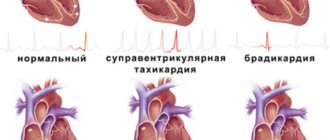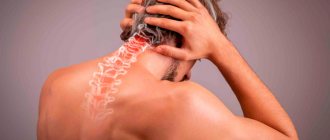Complaints of dizziness when bending over can be present in a variety of pathologies. But in the vast majority of cases, this is a classic symptom of circulatory or innervation disorders. Also, a malfunction of the vestibular apparatus may manifest itself in a similar way. But, again, this may be directly related to pathologies of blood vessels, cranial nerves and the cervical spine.
Dizziness when tilting the head is a manifestation of oxygen deficiency due to a decrease in the level of blood flow through the cerebral blood vessels. Brain tissues are highly sensitive to glucose and oxygen deficiency. They are delivered by red blood cells through arterial blood flow.
Blood supply to the brain structures is carried out using four paired arteries. Two sleepy ones are located on the sides of the neck. The two posterior vertebrates pass within the uncovertebral processes along the lateral sides of the cervical vertebral bodies. The carotid arteries supply blood to the lateral and anterior lobes of the brain. The posterior vertebral arteries are responsible for the blood supply to the optic and auditory nerves, the vestibular apparatus, and the posterior lobes of the brain.
When blood flow is disrupted, the following occurs:
- free radicals and breakdown products accumulate in cells;
- ischemia begins at the cellular level;
- When a significant number of cells die, a cerebral infarction develops.
The first clinical sign of cerebrovascular insufficiency is dizziness when tilting the head in different directions. We will tell you what reasons can provoke this condition in the article we bring to your attention. It also describes the main clinical symptoms, when they appear, you should immediately call an ambulance. If you experience dizziness, try to see a neurologist as soon as possible.
In Moscow, you can make an appointment right now with an experienced neurologist in our manual therapy clinic. The first consultation is provided to each client completely free of charge. During the appointment, the doctor will conduct an examination and make a preliminary diagnosis. If necessary, he will recommend additional examinations. After an accurate diagnosis is made, the patient will be prescribed an individual course of therapy.
Causes of dizziness when tilting your head down
Dizziness when tilting your head down is a sign of vertebrobasilar insufficiency. This is a pathological condition in which, due to changes in the course of the posterior vertebral arteries, any change in the position of the head provokes a lack of blood supply to the structures of the brain.
The main cause of dizziness when tilting the head is degenerative dystrophic changes in the cartilaginous tissues of the intervertebral discs. This is osteochondrosis and its negative consequences, such as instability of the position of the vertebral bodies, protrusion, extrusion and disc herniation.
Let's try to analyze these causes of dizziness when bending down in more detail. Let's start with the principle of blood supply to cerebral structures. Arterial blood enters the systemic circulation from the left ventricle. Movement along the aorta begins. Then branching into smaller arteries occurs. One of the branches of the subclavian artery goes to the space between the sixth and seventh cervical vertebrae. Here it comes out and, moving along the uncovertebral hook-shaped processes, reaches the oval opening in the cranium. This is where the extracranial section of the artery ends. After entering the cranium, the intracranial section of the artery begins. It can also be subject to stenosis due to some negative factors.
The cervical spine is characterized by increased lability, due to which a person can make a wide variety of head movements. Neck mobility is ensured by the special structure of the vertebral bodies and relatively high intervertebral discs. There is no disc between the first and second cervical vertebrae. They are connected to each other using a joint. This provides greater mobility, but can also cause a lot of trouble. Very often, modern people are diagnosed with subluxation or dislocation of the first cervical vertebra. This has an extremely negative impact on the state of brain structures. Such people often suffer from symptoms of increased intracranial pressure.
The cervical vertebrae have three types of processes:
- arcuate - they, together with the vertebral bodies, form the oval opening of the spinal vertebral canal;
- spinous - responsible for protecting and ensuring the performance of the locomotor system;
- uncovertebral - form a kind of canal along the lateral surfaces of the cervical vertebrae to protect the posterior vertebral arteries.
All structural tissues of the cervical spine are balanced and provide complete protection to the spinal cord structures, radicular nerves and cerebral blood vessels.
What happens with the development of cervical osteochondrosis:
- the cartilaginous tissues of the intervertebral discs do not have their own circulatory network; they receive fluid and nutrients dissolved in it only with the active contractile work of the surrounding muscles;
- if a person is engaged in sedentary work with prolonged tension in the neck muscles, then the diffuse nutrition of the cartilage tissue of the fibrous ring is disrupted;
- it begins to take fluid from the nucleus pulposus located inside it;
- the corpus pulposum loses its mass and loses its ability to maintain the normal height of the intervertebral disc;
- this creates conditions for instability of the position of the vertebral bodies, they begin to shift relative to their axis;
- pressure is exerted on the radicular nerves and their branches;
- in response, an inflammatory reaction develops and a pain syndrome appears with muscle fiber tension;
- it fixes the incorrect position of displaced vertebral bodies;
- against this background, there is a change in the patency of the posterior vertebral arteries towards narrowing;
- The structures of the brain and vestibular apparatus do not receive sufficient arterial blood and the person experiences so-called orthostatic dizziness.
There are other causes of dizziness when tilting the head down, in particular, they include:
- use of certain medications without a doctor’s prescription;
- intoxication, including alcohol or nicotine poisoning (after smoking);
- inflammation of the neck muscles in the area of the carotid or posterior vertebral arteries;
- heart and vascular failure;
- atherosclerosis of cerebral vessels with the formation of cholesterol plaques;
- diabetes mellitus accompanied by diabetic angiopathy;
- damage to paired cranial nerves, causing spasm of blood vessels;
- high levels of cortisol, adrenaline and other stress hormones in the human body;
- arterial hypertension;
- liver and kidney failure;
- high level of intracranial pressure;
- tumor processes;
- inflammation of the middle ear, etc.
Only an experienced doctor can exclude all possible causes of dizziness when tilting the head. Therefore, do not ignore this sign, but urgently make an appointment with a neurologist. Remember that in some cases this symptom may indicate the development of an acute cerebrovascular accident. In the event of a stroke, timely medical care allows a person to fully maintain their ability to work and prevent the development of paralysis.
Summarize
- Most people experience dizziness from time to time and it is usually not a cause for concern.
- However, regular dizziness upon waking may be a sign of an underlying medical condition.
- Possible causes of dizziness include dehydration, ear infections, low blood pressure, and medication side effects.
- People who regularly wake up feeling dizzy or have other symptoms along with dizziness should see a doctor.
The article was prepared by experts for informational purposes only. It should not be used as a guide for treating medical conditions and is not a substitute for professional medical advice, diagnosis, or treatment. In case of illness or any symptoms, you should always consult a doctor and not self-medicate.
Tags: Dizziness
About the author: Anatoly Dementyev
General practitioner, candidate of medical sciences, nutrition expert. Graduated from Leningrad State Medical University named after. acad. I.P. Pavlova.
- Related Posts
- Nausea and lack of appetite: what are the causes?
- What are the causes of loss of appetite and fatigue?
- Foods that cause gas and bloating in adults
« Previous entry
When help is needed urgently
There are situations when a patient needs help urgently, otherwise he may begin to develop irreversible consequences. We are talking about a violation of cerebral circulation. It can be transient (transient) or permanent, ischemic or hemorrhagic.
With a transient disturbance of cerebral circulation, severe dizziness occurs when bending over, which completely disappears when the previous position of the skull is restored. It is due to the fact that when the position of the vertebral bodies changes, the movement of blood through the posterior vertebral arteries is disrupted. As a result, dizziness, nausea, throbbing headache, and spots in the eyes may occur. If such symptoms appear, a visit to a neurologist should be made within 72 hours. Each subsequent attack can lead to a full-fledged ischemic stroke of the brain.
It is worth considering that the causes of dizziness when bending over in women may be associated with menopausal hormonal changes in the body. The fact is that a certain balance of hormones guarantees reliable protection against myocardial ischemia and cerebral structures. Therefore, cerebral and coronary circulatory disorders are extremely rarely diagnosed in women of reproductive age. They practically never have strokes or heart attacks. The situation changes dramatically after a woman reaches the age when menopause occurs. Hormone levels change, processes begin that lead to changes in platelet aggregation. The blood becomes thick and viscous. The risk of sudden stroke or heart attack increases sharply.
Therefore, severe dizziness when tilting the head in a woman over 50 years of age is a reason to urgently call an ambulance team.
Severe dizziness when bending down may be accompanied by nausea and vomiting - these are signs of damage to brain structures. Pay attention to facial expressions - if an asymmetric contraction of the facial muscles is visible, then this is also a reason to urgently seek medical help. In principle, dizziness is an extremely dangerous clinical symptom. This is how various types of neoplasms begin to appear at an early stage. If you undergo diagnosis and treatment in a timely manner, the chances of recovery are very high. Therefore, do not ignore such symptoms, seek help from a neurologist.
Obstructive sleep apnea
Obstructive sleep apnea (OSA) is a sleep disorder that can sometimes cause morning dizziness. OSA occurs when a person's breathing is repeatedly interrupted or blocked during sleep. These interruptions disrupt sleep and can affect blood oxygen levels.
Here are other symptoms of OSA ():
- loud snoring and the feeling that you are suffocating during sleep
- need to urinate more often at night
- dry mouth and headaches in the morning
- difficulties with concentration and memory
- excessive fatigue during the day
Over the long term, OSA may increase the risk of developing certain chronic diseases, such as heart problems, diabetes and asthma.
People with symptoms of OSA should see a doctor to have their condition evaluated. Depending on the underlying cause of OSA, treatment options may include lifestyle adjustments, use of breathing apparatus at night, and surgery.
What to do if you feel dizzy when tilting your head
If you experience dizziness when bending forward, the first thing to do is to stabilize yourself and eliminate the possibility of falling. Therefore, if possible, you need to sit or lie down. If this is not possible, lean your back against a vertical surface. Start breathing deeper. Release the pressure from your collar or tie. It is important to provide the brain with a sufficient amount of arterial blood.
If dizziness occurs repeatedly when tilting your head forward or backward, then get examined:
- make an appointment with a neurologist;
- take an x-ray of the cervical spine;
- undergo an MRI and ultrasound examination;
- donate blood for a biochemical analysis to determine the level of sugar, cholesterol, protein, lipids, urea and creatinine.
After making an accurate diagnosis, the neurologist can prescribe a consultation with an angiosurgeon, therapist, etc. Treatment is carried out for the disease that causes dizziness when tilting the head back or forward. By itself, this clinical symptom is useless to treat. Such measures will not lead to anything good. We need to find the cause and eliminate it. Only in this case the patient receives guaranteed relief from the unpleasant manifestations of the disease.
If you are periodically bothered by dizziness when tilting and turning your head, we recommend making an appointment with a neurologist at our manual therapy clinic in Moscow right now. Fill out the doctor appointment form located further down the page. The administrator will contact you and agree on all the details of the upcoming visit to the doctor.
Low blood pressure
Low blood pressure, or hypotension, can cause dizziness in some people.
Blood pressure may also drop suddenly when you move from a lying or sitting position to a standing position, such as when you get out of bed in the morning. This sudden drop in blood pressure is called postural or orthostatic hypotension.
Here are the symptoms of postural hypotension you may experience:
- dizziness
- lightheadedness
- blurry vision
- fainting
- falls
Low blood pressure can sometimes be a symptom of a disease such as Parkinson's disease or Addison's disease. Prolonged bed rest and certain medications, such as beta blockers, can also cause low blood pressure.
People who experience postural hypotension can try getting out of bed slowly to prevent dizziness or loss of consciousness. Wearing compression stockings during the day may also help some people.
If a medicine is causing low blood pressure, your doctor may recommend changing your dosage or switching to a different medicine. Treating any underlying medical conditions can also help prevent low blood pressure symptoms.









